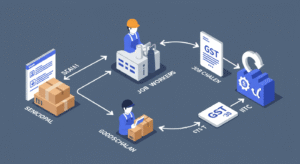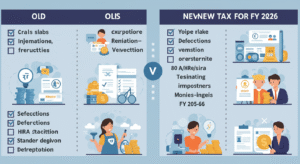Staying compliant with Goods and Services Tax (GST) can feel like a moving target, especially for small business owners in India juggling multiple responsibilities. As we look towards 2025, understanding potential GST updates small business 2025 regulations might bring is crucial for smooth operations and avoiding penalties. Are you prepared for the potential India GST changes and their small business impact?
This article aims to demystify the landscape, explaining the types of recent or anticipated GST updates relevant for the coming year and exploring how they might specifically affect small businesses like yours. We'll break down complex rules into understandable insights, helping you navigate the evolving tax environment with confidence.
Key Areas of Potential GST Changes Affecting Small Businesses in 2025
While specific GST amendments are announced periodically by the GST Council and the government, keeping an eye on trends and potential focus areas is vital. Based on recent discussions and typical patterns of GST evolution in India, here are some areas where changes relevant to 2025 might occur:
Potential Adjustments to Threshold Limits
- Turnover Thresholds: The thresholds for mandatory GST registration or opting into specific schemes (like the Composition Scheme) are reviewed periodically. Any change here directly impacts whether a growing small business needs to register for GST or if its eligibility for simplified schemes changes. For example, a potential increase in the threshold could bring relief to very small businesses, while a decrease (less likely but possible) could bring more businesses into the GST net.
- E-invoicing Thresholds: The mandatory e-invoicing threshold has been progressively lowered. Further reductions could be anticipated, potentially bringing more small and medium businesses under its ambit in 2025. This requires specific IT infrastructure and process changes.
Streamlining Compliance and Procedures
- Return Filing Simplification: Efforts to simplify GST return forms (like GSTR-1, GSTR-3B) are ongoing. Future updates might involve merging returns, introducing simpler quarterly filing options for smaller taxpayers (beyond the existing QRMP scheme), or further automating the process based on e-invoicing data.
- Input Tax Credit (ITC) Rules: Rules surrounding the claim of ITC are frequently refined to curb fraudulent claims. Expect potential further tightening or clarification on conditions for claiming ITC, linking it more closely to supplier compliance (e.g., timely filing of their GSTR-1). This directly affects working capital.
Sector-Specific Adjustments or Clarifications
- Rate Rationalization: Discussions around rationalizing the multiple GST rate slabs (5%, 12%, 18%, 28%) continue. While major restructuring might be complex, minor adjustments or clarifications for specific goods or services impacting small businesses (e.g., specific handicraft items, certain services) could occur.
- Rules for E-commerce Operators & Suppliers: As e-commerce grows, specific rules governing Tax Collected at Source (TCS), registration requirements for online sellers, and place of supply rules might see further clarification or changes, impacting many small businesses using online platforms.
How These Potential India GST Changes Impact Your Small Business
Understanding potential updates is one thing; knowing their practical small business impact is crucial for planning:
Impact on Compliance Burden
- Simplification: If simplification measures are introduced (e.g., easier return forms), it could reduce the time and cost spent on compliance.
- Increased Scrutiny: Stricter ITC rules or lower e-invoicing thresholds might initially increase the compliance burden, requiring more meticulous record-keeping and faster adoption of technology. Failure to comply can lead to penalties and blocked credits.
Impact on Cash Flow
- ITC Availability: Changes in ITC rules directly impact cash flow. If claiming credit becomes more dependent on supplier compliance, delays or errors by a supplier could block your ITC, straining working capital.
- Payment Timelines: Any changes affecting return filing frequency or payment due dates influence cash flow management.
Impact on Business Processes & Technology
- E-invoicing: Mandatory e-invoicing requires businesses to integrate their accounting/billing software with the government's Invoice Registration Portal (IRP). Lowering the threshold means more SMEs need to invest in compatible software and train staff.
- Record Keeping: Stricter compliance generally necessitates more robust and accurate record-keeping practices. Digital record-keeping becomes increasingly important.
Strategic Considerations
- Pricing: Significant rate changes or ITC restrictions might necessitate revisiting product or service pricing strategies.
- Scheme Choice: Changes in thresholds or rules might make schemes like the Composition Scheme more or less attractive. Regularly evaluating your eligibility and the benefits is key. (For more details on this option, see our guide on Understanding the GST Composition Scheme).
Navigating the GST Updates Small Business 2025: Practical Steps
Staying ahead requires proactive steps:
Stay Informed
- Official Sources: Regularly check the official GST portal (gst.gov.in) and the Central Board of Indirect Taxes and Customs (CBIC) website for notifications, circulars, and press releases.
- Reliable News: Follow reputable financial news sources and tax portals (like InsightsOnTax!) for analysis and updates.
Review and Adapt Your Processes
- Accounting Software: Ensure your accounting software is up-to-date and capable of handling potential changes like e-invoicing or revised return formats.
- Internal Checks: Implement regular checks to ensure accurate invoicing, timely reconciliation of purchases with GSTR-2B, and correct ITC claims.
Assess Eligibility for Schemes
- Periodically review your turnover and business activities to determine if you are eligible for simpler schemes like the Composition Scheme or the QRMP (Quarterly Return Monthly Payment) scheme, which can ease the compliance burden. Revisit this especially if thresholds change. (As mentioned, our Guide to the Composition Scheme can provide more background).
Train Your Team
- Ensure your accountant or staff responsible for GST compliance are aware of the latest rules and procedures. Invest in training if necessary.
Common Pitfalls to Avoid
- Ignoring Official Communications: Don't rely solely on hearsay; always verify information from official sources.
- Delayed Compliance: Procrastinating on adopting new requirements (like e-invoicing) can lead to business disruption and penalties.
- Incorrect ITC Claims: Claiming ineligible ITC or failing to meet the conditions can result in demands, interest, and penalties during audits.
- Mismatch Errors: Failing to reconcile your purchase records (GSTR-2B) with your claimed ITC (GSTR-3B) is a common red flag for tax authorities.
Conclusion: Proactive Adaptation is Key
The GST landscape in India is dynamic, and staying informed about GST Updates Small Business 2025 is not just advisable, it's essential for survival and growth. While predicting exact changes is difficult, understanding the potential areas of focus – thresholds, compliance simplification, ITC rules, and e-invoicing – allows small business owners and their accountants to prepare.
The key small business impact often relates to compliance load, cash flow, and the need for technological adaptation. By staying vigilant, leveraging official resources, reviewing internal processes, and seeking expert guidance when needed, small businesses can navigate the complexities of India GST changes effectively and continue to thrive.
Disclaimer: The information provided in this article is for general informational purposes only and does not constitute professional tax advice. Tax laws are subject to change. Please consult with a qualified tax advisor for advice tailored to your specific situation.
Navigating GST updates can be complex. If you need personalized guidance on how recent or upcoming changes affect your specific business operations, we recommend contacting a qualified tax consultant. They can provide tailored advice to ensure you remain compliant and optimize your tax position.



